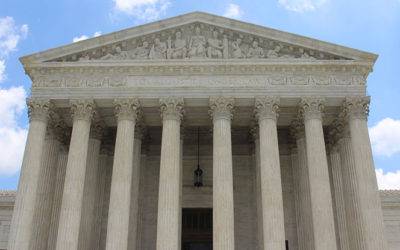SOUTH CAROLINA WAGE & HOUR LAWYERS
Falls Legal represents workers in individual, collective, and class action wage and hour lawsuits in South Carolina. We have helped workers recover millions of dollars in unpaid wages, minimum wages, and overtime pay wages. In many instances, employers have unlawfully withheld owed minimum wages, overtime wages, and other wages from employees. Wage and hour cases can generally be divided into several categories, described below.
UNPAID OVERTIME
The federal overtime law is called the Fair Labor Standards Act (“FLSA”). It provides for the payment of overtime wages to certain employees. Some employees are “exempt” under overtime laws and do not qualify for overtime wages. Other employees are “non-exempt” and should be paid overtime for all hours over 40. An employee should not rely on an employer’s own finding that they are “exempt” under the overtime law. In certain instances, employers will mistakenly or intentionally misclassify an employee as “exempt” in order to get around the overtime pay requirements. If you are unsure whether you are properly classified as “exempt,” you should contact an overtime lawyer immediately.
INDEPENDENT CONTRACTOR MISCLASSIFICATION
Independent contractor misclassification is a significant problem for employees. You should not rely on the fact that you are issued a Form 1099, instead of a W-2 Form to determine whether you are truly an employee or independent contractor. Instead, courts look to the nature of the relationship between the “contractor” and the “employer” to determine whether it is more like an employment relationship or whether it is more like a contractor relationship. Perhaps the most important factor is the level of control an “employer” exerts over the contractor. If you are unsure about your status, you should contact an employment misclassification lawyer as soon as possible.
SERVERS AND TIPPED EMPLOYEES
If you are a server, bartender, or other tipped employee who is paid less than minimum wage (normally around $2.13 per hour) plus tips, there are additional rules that employers must follow. Falls Legal has handled many food and beverage industry cases on behalf of servers and bartenders who are owed a significant amount of unpaid wages. This can occur when employers operate invalid tip pools, ask servers/bartenders to perform non-tipped work (such as cleaning bathrooms), require tipped employees to spend more than 20% of their time performing sidework and other duties, or require tipped employees to pay for customer walkouts or breakage out of their own tip money.
UNPAID WAGES
The South Carolina Payment of Wages Act (“SCPWA”) governs the payment of employee wages in South Carolina. Wages include almost all amounts that employees receive including salary, hourly pay, commissions, bonuses, and vacation/holiday/sick leave which is due under any policy or contract. Recently, South Carolina courts have also held that “wages” may include tips that tipped employees are paid for purposes of the SCPWA. If you have questions about unpaid wages you believe you are owed, you should contact an employment law firm familiar with the Payment of Wages Act as soon as possible.
LATEST POSTS
Five Lessons Sexual Harassment Victims Can Take from Gretchen Carlson’s Case Against Fox News
The attorneys from Falls Legal recently returned from the 2017 National Employment Lawyers Association convention in San Antonio, Texas. As part of this year’s program, NELA was proud to host a panel on “Honoring Courageous Plaintiffs.” Gretchen Carlson and her...
Falls Legal Attending National Employment Law Conference in San Antonio
The attorneys from Falls Legal will be heading to San Antonio June 21-24 to attend the annual convention sponsored by the National Employment Lawyers Association, the country’s largest organization comprised of employee-side attorneys. This year’s convention titled...
New Sixth Circuit Decision Sets up Supreme Court Showdown
On May 26, 2017, the Sixth Circuit Court of Appeals issued a well-reasoned and thorough decision on the issue of whether employers may bar employees from pursuing class-action litigation or collective arbitration of work-related claims. The case is NLRB v....
CONNECT WITH US
125-E Wappoo Creek Dr.
Suite 102
Charleston, SC 29412
843.737.6040
info@falls-legal.com



